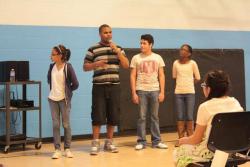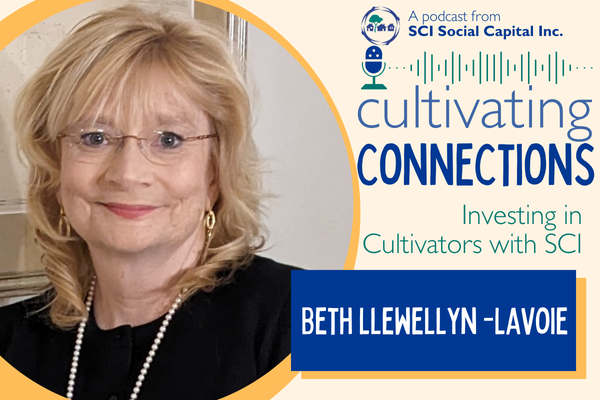Closing the Civic Achievement and Social Capital Gaps

We are all too aware of the academic achievement gap, which has rightfully stirred much effort to close the gap and create equal educational opportunity for students of all backgrounds. New research indicates there is also a disconcerting gap on civic achievement and social capital that is of particular concern to us here at SCI.
Peter Levine, Director of the Center for Information and Research on Civic Learning (CIRCLE), recently wrote, “Closing the Civic Achievement Gap in an Increasingly Diverse Country“. Peter summarizes a new report from the Commission on Youth Voting and Civic Knowledge that indicates low-income students of color are far less-likely to experience interactive civic education such as discussion of current events and participation in school governance. Such practices have proven to be a key part of how young people develop civic skills, and Peter suggests the limited civic education could be one factor behind the voting gap–youth who attended college voted at nearly twice the rate of their non-college peers.
It’s troubling enough that class differences seem to be contributing to a civic participation gap. Perhaps even more disturbing is a growing body of research being conducted by the Saguaro Seminar for Civic Engagement indicating that there is a “growing youth class gap”. According to their work, youth from more affluent backgrounds have increasingly greater access to enriching extracurricular activities and supportive networks than lower-income young people. Essentially, the more affluent have a greater stock of social capital, giving them significant advantages in terms of educational and economic success, as well as predicting greater civic engagement. While social capital may always have had such a predictive quality, my understanding of the research is that they are seeing access to the kinds of activities and relationships that build social capital growing increasingly unequal in recent years.
I wrote recently here about SCI’s strategic plan focus on youth success and healthy communities. The research cited above on civic and social capital gaps provide an important backgrop for our focus on youth success. Since our founding, we have had youth leadership programming engaging teens in community projects that help them develop civic skills. With our new strategic plan, we are also focusing on how we can enmesh young people in our communities in a set of relationships that will help them succeed. Many of our AmeriCorps members are involved with recruiting mentors and role models for youth served by their host agencies. I wrote about the link between social capital and mentoring in this Mass Mentoring guest post . Just yesterday I was tweeting and Facebooking about one need mentioned by an AmeriCorps member–finding women in STEM careers to speak to Girls Inc of Lynn participants on a panel next week. This is one simple example of how a program can try to level the playing field a bit, by giving their youth a connection to adults that can provide encouragement about pursuing an educational path that can lead to a well-paying career. (as an aside, after spending about 10 minutes posting about the need for STEM speakers I had 3 responses, a sign of people’s interest in helping youth succeed.)
Equal opportunity is a hallmark of the American ideal: equal opportunity to shape our democracy, and equal opportunity for each young person to succeed. The research points to the big gap between the ideal and the reality in our communities. We will do what we can to bring our social capital building to the work of closing that gap.

0 Comments